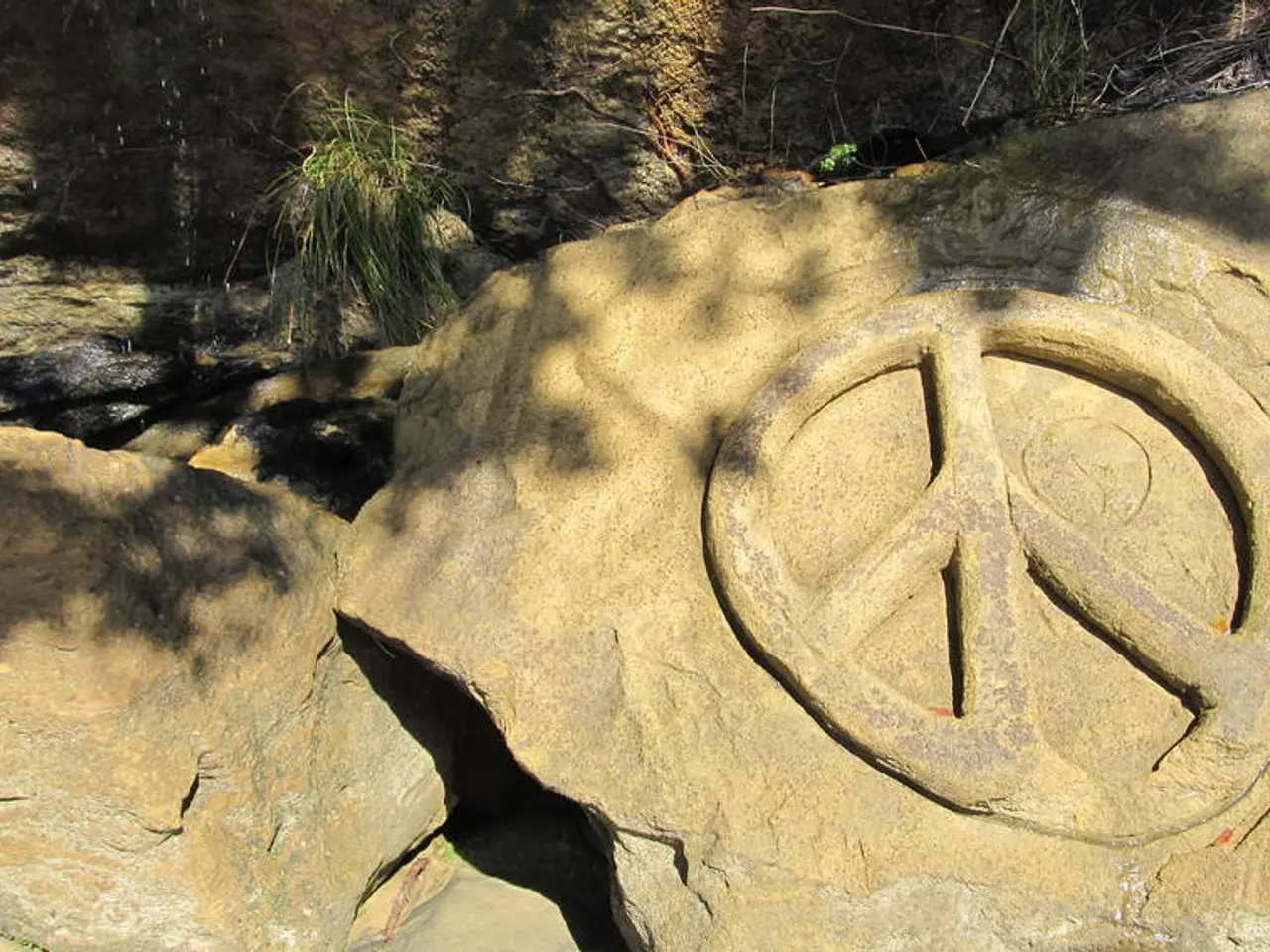Abdominal Pain and Other Symptoms: Could It Be Kidney Stones?
In the human body, a common health issue that affects many individuals is kidney stones. These solid, often irregularly shaped masses or crystals are formed in the urinary tract and can cause significant discomfort.
Kidney stones typically form in the kidney and cause pain when they get stuck in the ureter, the tube that connects the kidney to the bladder. One of the early warning signs of kidney stones is flank pain, which is felt in the flank area, which is on either side of the middle back, between the pelvis and the ribs. This pain can move to the abdomen and groin area. Other early signs include pain that comes and goes, nausea, and vomiting.
Seeing blood in urine can also be a sign of a kidney stone. In some cases, men may experience pain in their testicles due to a kidney stone. It's important to note that kidney stone pain is not typically located in the middle of the back by the spine or lower back by the hip bones.
Kidney stones can be caused by various factors such as dehydration, diet, medical conditions, medications, or a family history of kidney stones. To reduce the risk of kidney stones, it is advised to drink plenty of water, eat fruits and vegetables with citrate, limit salt, limit animal protein, lose weight, and take medication as advised by a urologist.
There are different types of kidney stones, such as calcium oxalate, calcium phosphate, uric acid, and struvite. The smallest kidney stones can be as small as a poppy seed or just crystals that show up on a urine test. On the other hand, kidney stones can grow to be as large as filling the entire kidney, which can be more than 4 or 5 centimeters, depending on the size of the kidney.
When a kidney stone moves from the kidney to the bladder, it is referred to as "passing a stone." However, it's important to note that this refers to the painful movement within the body and not the passage through the urethra. A kidney stone can cause inflammation, which can be mistaken for a bladder or kidney infection. In some cases, an infected kidney stone can cause fever and chills.
In treating kidney stones, seeing a urologist can help navigate the best path forward. The University Hospital Frankfurt (Klinikum der J.W. Goethe-Universität), in particular the Department of Urology and Pediatric Urology led by Prof. Axel Haferkamp, is supporting research on kidney stones with the new Gemini device for extracorporeal shock wave lithotripsy (ESWL). This hospital acts as a research and referral center for this technology and is available as a contact point for expert advice for affected patients.
In conclusion, understanding kidney stones, their causes, symptoms, and treatment options is essential for maintaining good health. By staying hydrated, maintaining a balanced diet, and seeking medical advice when necessary, individuals can reduce their risk of developing kidney stones and manage them effectively if they do occur.
Read also:
- Understanding Hemorrhagic Gastroenteritis: Key Facts
- Stopping Osteoporosis Treatment: Timeline Considerations
- Tobacco industry's suggested changes on a legislative modification are disregarded by health journalists
- Expanded Community Health Involvement by CK Birla Hospitals, Jaipur, Maintained Through Consistent Outreach Programs Across Rajasthan








